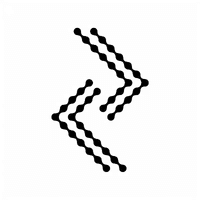
Zoth Airdrop
Zoth aims to democratize access to real-world asset yields by bridging TradFi and DeFi. Users deposit assets like U.S. T-bills or corporate bonds into vaults to mint ZeUSD, a stablecoin backed by these RWAs. Positioned as the first “restaking” layer for RWAs, Zoth emphasizes a community-driven model and compliance, connecting institutional-grade investments with crypto liquidity.
Airdrop farming steps
Step-by-Step Guide to Farming Zoth Airdrop
Visit the Zoth Atlas: Go to https://atlas.zoth.io/ and click on the top right corner to connect your wallet.
Mint zeUSD: In the Mint section of the platform, create zeUSD stablecoin tokens. This is one of the main on-chain interactions in the campaign.
Engage in the Harbour Social Tasks: Head to the Harbour section, where you can invite new participants and complete social engagement tasks to earn collectible badges.
Complete Galxe Tasks: Additionally, you can navigate to Zoth's Galxe campaign and complete the available tasks to earn loyalty points.
Project Review
Problem Solved
Traditional asset yields (e.g. government bonds, trade receivables) have been walled off from retail crypto users. Zoth tackles this by tokenizing these real-world assets and making them accessible via DeFi. The project breaks institutional barriers by enabling a free flow of capital between TradFi and DeFi. It addresses fragmented systems and unfair incentives that historically kept retail out of RWA markets. Zoth’s approach - including ZeUSD, a stablecoin fully backed by tangible assets - unlocks stable yield opportunities and engages the community to fuel RWA adoption in DeFi.
Tokenomics
ZOTH is the platform’s utility and governance token. Its tokenomics are designed for a “circular economy” within the ecosystem. 14% of the total supply is allocated to community rewards and growth initiatives, while the rest is split among investors, team, and treasury. ZOTH accrues value from fees: the protocol charges transaction and asset-management fees, which are distributed to token stakers. Stakers also govern the system via the Zoth DAO, voting on asset onboarding, fee parameters, and other upgrades. Additionally, ZOTH incentives help bootstrap liquidity providers and even reward diligent borrowers.
Perspectives
Zoth is positioned in a rapidly growing RWA-Fi narrative. Only ~$8 billion of real assets have been tokenized on-chain so far, leaving an estimated $2+ trillion opportunity to unlock. The team plans to expand into new product verticals and integrate with more ecosystems - even exploring Bitcoin via sidechains. Industry analysts have spotlighted payment financing (PayFi) as a key Web3 trend, underscoring the potential if Zoth can execute. Still, it faces stiff competition and must navigate regulatory compliance to earn user trust at scale.
Founders and Team
Zoth was founded by Pritam Dutta (CEO) and Koushik Bhargav (CTO) in early 2023. Dutta brings fintech and corporate experience, and drives the project’s vision, while Bhargav contributes blockchain expertise and product development skills. The core team has been through respected accelerator programs - from Fidelity’s fintech showcase to Ripple’s XRPL accelerator - reflecting strong industry connections. They’ve also partnered with major players like Coinbase, Chainlink, and Wormhole, indicating the team’s ability to execute and attract support.
Funding
Lead Investors: Blockchain Founders Fund
Notable Investors: Borderless Capital, YAP Capital, Momentum6, Singularity DAO, Aztlan Capital, Outlier Ventures, Decubate, Wormhole Ecosystem Fund
Notable Investors: Taisu Ventures, G20, Fat Cat Ventures, GemHead Capital, Foundership Ventures, DCI Capital
Lead Investors: Bolts Capital
Zoth has attracted multiple rounds of funding, raising over $21 million in total funding. In August 2025, it raised $15 million through a strategic token purchase committed by Bolts Capital to accelerate Zoth's RWAFi ecosystem. Over the years, Zoth has also participated in numerous accelerator programs, including those run by XDC Network, Tenity, Outlier Ventures, Orbit Startups, and others. These programs have provided access to networks, technical expertise, and early-stage partnerships that have strengthened Zoth’s ability to refine its product and expand market reach.






Community
Zoth has rapidly built a large community by leveraging airdrop incentives and gamified participation. Over 1 million on-chain wallets engaged with its multichain testnet “Atlas,” which introduced DeFi users to RWA yields through quests and XP points. The project’s Discord server counts over 160,000 members, reflecting considerable buzz. Sentiment in the community is generally positive, driven by anticipation of token rewards and the RWA narrative. By allocating a sizable 14% of tokens to community incentives, Zoth’s team effectively bootstrapped a user base - though retaining these users post-airdrop (when the free rewards fade) will be the next challenge.
Competitors
The real-world asset DeFi sector is becoming crowded with both established and emerging players. Protocols like Goldfinch, Centrifuge, Maple, and Ondo Finance are also connecting off-chain assets to crypto markets. Many large DeFi platforms (from MakerDAO to new startups) are vying to capture stable yields from RWAs, so Zoth will compete for users and quality asset supply. Market saturation is a concern - each project must differentiate itself. Zoth’s multichain, community-centric approach and its focus on a stablecoin (ZeUSD) are angles it hopes will set it apart, but winning mindshare and liquidity won’t be easy against well-funded rivals.
Conclusion
Zoth’s thesis is simple: bring verifiable off‑chain yield on‑chain via ZeUSD and route fees to ZOTH stakers under DAO control. The upside depends on three levers - quality/diversification of collateral and custody, sustained liquidity that keeps the peg tight across chains, and organic demand for yield beyond incentives. The downside is typical of RWA‑Fi: regulatory friction, asset/custody incidents, exploits, and liquidity gaps that can unwind confidence fast. Execution, not narrative, will decide outcome. If Zoth delivers transparent reserves, clean audits, and durable usage, it can graduate from incentive‑led growth to a fee‑generating utility; if not, it risks being another short‑cycle RWA farm.
